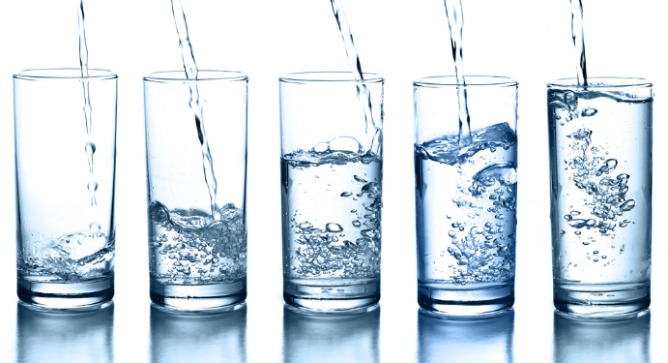For many people, a glass of water seems like such a simple thing. But if forecasts are correct that the demand for drinking water will exceed supply by 40 percent within the next two decades, it could become a prized commodity.
And while dozens of water technology innovation companies are working to close the supply-demand gap, Israel’s Advanced Mem-Tech may have a significant contribution toward turning more H2O into potable water.
Spread the Word
• Email this article to friends or colleagues
• Share this article on Facebook or Twitter
• Write about and link to this article on your blog
• Local relevancy? Send this article to your local press
This blue-and-white startup makes advanced membranes for water treatment. Like a colander in the kitchen, these membranes stop bacteria, microbes and parasites from passing into the water supply.
This process of pumping water through a membrane – a thin film-like polymer sheet with tiny holes in it – is not new. What is innovative is Mem-Tech’s “high permeability” product that the company says is far more effective than other filtration membranes used in water treatment systems.
“Because of the polymer of our membrane, you can process more water with less pressure,” VP business development Maura Rosenfeld tells ISRAEL21c. “Less energy is needed to pump the water through, fewer membranes are required and there are less capital and operating expenses. Any time the system is smaller, everything can be downscaled.”
“The work is done faster with a smaller footprint and lower energy requirement,” adds CEO Moshe Kelner.
Mem-Tech’s product is a component within water treatment systems. “We’re not competing with systems – we’re the membrane in the system,” explains Rosenfeld.
Israeli knowhow and R&D
Startups usually come up with an idea, produce it and then try to sell it on the market. Mem-Tech worked backwards in order to move forward.
The core technology for Mem-Tech’s hydrophilic polymer, a version of polysulfone, is licensed from the Technion-Israel Institute of Technology in Haifa and is the innovation of two leading professors there.
The Israeli-made membranes are different from others on the market because they are innately hydrophilic – they allow water to pass through much more easily.
“The Technion team was focusing on developing a new membrane that could be a game-changer for the water industry,” Kelner tells ISRAEL21c. “They were smart enough to realize there was a huge gap between development in the Technion and until you can bring it to the market.”
Mem-Tech conducted an initial in-house trial. With lab results in hand, Kelner – who has 25 years of business and entrepreneurial experience – asked main players in the industry if they were interested in the product the Technion professors thought up.
“When the industry said they wanted what we were going to develop, we opened the company,” he explains. “Working together with industry from day one, getting the right feedback from the industry, from a potential client, and with the knowhow from the Technion, is a major advantage.”
As such, in September 2010, Mem-Tech was founded at the Mofet B’Yehuda Innovation Accelerator, a technology incubator supported by the Office of the Chief Scientist of the Ministry of Industry and Trade, and has its labs in Ness Tziona.
A multinational chemicals and polymers company partnered up with the company shortly after its launch. “We’re working with this major international partner to better technology on an existing project,” says Kelner.
Mem-Tech goes global
Global demand for membranes is projected to increase nine percent annually to $19.3 billion in 2015, according to a report by the Freedonia Group.
Mem-Tech’s market strategy is to partner with membrane solution providers that can integrate their product into complete filtration solutions.
“There are endless uses,” says Rosenfeld, citing desalination pre-treatment and wastewater treatment as examples.
So while the membranes are made in Israel, the expected client base is everywhere.
“We will go to North America, Europe and Asia,” says Kelner. “We’re already in a process for talking with mega strategic partners and they have projects all over the world.”
Telling potential partners that the company is from Israel is a great calling card. “Israel has a very good reputation for water technology. If you’re in the US, for example, and you’re speaking about water tech, they all agree that Israel has the novelty and knowhow and a very good reputation. It definitely helps.”
Mem-Tech already has its first ultrafiltration membrane product ready, as well as a range of ideas in the pipeline. The company is focusing on optimizing membrane performance and launching its first commercial product, with market entry expected in 2013.
“Today we’re doing pilots with different players,” says Kelner. “We’re on the pre-production stage with and for customers. We’re looking for investors to fund the completion of product selection and scale-up to production.”
*Clean drinking water could become a prized commodity in the next two decades. Photo by www.shutterstock.com













